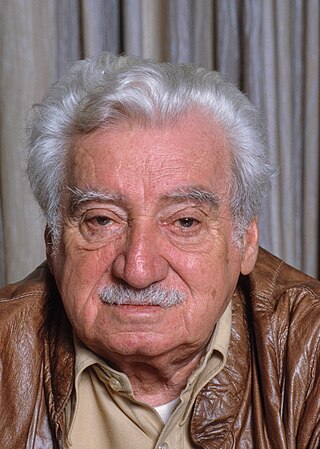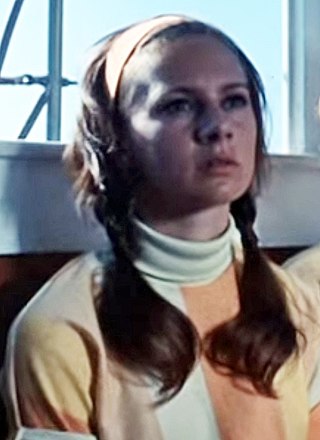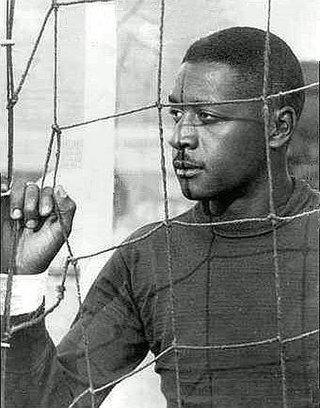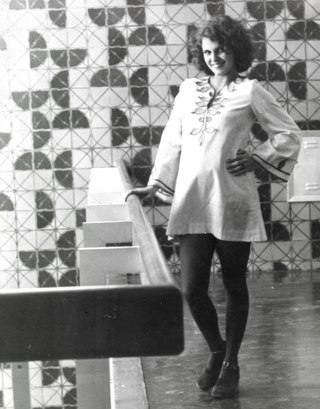
Brazil, officially the Federative Republic of Brazil, is the largest and easternmost country in South America and Latin America. Brazil is the world's fifth-largest country by area and the seventh most populous. Its capital is Brasília, and its most populous city is São Paulo. Brazil is a federation composed of 26 states and a Federal District. It is the only country in the Americas where Portuguese is an official language. Brazil is among the world's most multicultural and ethnically diverse nations, due to over a century of mass immigration from around the world.

Maria do Carmo Miranda da Cunha, known professionally as Carmen Miranda, was a Portuguese-born Brazilian singer, dancer, and actress. Nicknamed "The Brazilian Bombshell", she was known for her signature fruit hat outfit that she wore in her American films.

Brazil is a 1985 dystopian science-fiction black comedy film directed by Terry Gilliam and written by Gilliam, Charles McKeown, and Tom Stoppard. The film stars Jonathan Pryce and features Robert De Niro, Kim Greist, Michael Palin, Katherine Helmond, Bob Hoskins, and Ian Holm.

The Three Caballeros is a 1944 American live-action and animated musical propaganda anthology film produced by Walt Disney and released by RKO Radio Pictures. The film premiered in Mexico City on December 21, 1944. It was released in the United States on February 3, 1945 and in the United Kingdom in March 1945. It marks the tenth anniversary of Donald Duck and plots an adventure through parts of Latin America, combining live-action and animation. This is the second of the six package films released by Walt Disney Productions in the 1940s, following Saludos Amigos (1942). It is also notable for being one of the first feature-length films to incorporate traditional animation with live-action actors.

The Good Neighbor policy was the foreign policy of the administration of United States President Franklin D. Roosevelt towards Latin America. Although the policy was implemented by the Roosevelt administration, President Woodrow Wilson had previously used the term, but subsequently went on to justify U.S. involvement in the Mexican Revolution and occupation of Haiti. Senator Henry Clay had coined the term Good Neighbor in the previous century. President Herbert Hoover turned against interventionism and developed policies that Roosevelt perfected.

Jorge Amado was a Brazilian writer of the modernist school. He remains the best-known of modern Brazilian writers, with his work having been translated into some 49 languages and popularized in film, including Dona Flor and Her Two Husbands in 1976. His work reflects the image of a Mestiço Brazil and is marked by religious syncretism. He depicted a cheerful and optimistic country that was beset, at the same time, with deep social and economic differences.

Francesca Annis is an English actress. She is known for television roles in Reckless (1998), Wives and Daughters (1999), Deceit (2000), and Cranford (2007). A six-time BAFTA TV Award nominee, she won the 1979 BAFTA TV Award for Best Actress for the ITV serial Lillie. Her film appearances include Krull (1983), Dune (1984), The Debt Collector (1999), and The Libertine (2004).

Gal Maria da Graça Costa Penna Burgos, known professionally as Gal Costa ( ), was a Brazilian singer of popular music. She was one of the main figures of the tropicalia music scene in Brazil in the late 1960s and appeared on the acclaimed compilation Tropicália: ou Panis et Circencis (1968). She was described by The New York Times as "one of Brazil's greatest singers."

The eighteenth edition of the South American Championship was held in Santiago, Chile from 14 January to 28 February. This tournament was an extra edition, with no trophy handed to the winners, but considered official by CONMEBOL.

Ary Evangelista de Resende Barroso was a Brazilian composer, pianist, soccer commentator, and talent-show host on radio and TV. He was one of Brazil's most successful songwriters in the first half of the 20th century. Barroso also composed many songs for Carmen Miranda during her career.

Moacir Barbosa do Nascimento was a Brazilian professional footballer who played as a goalkeeper. His career spanned 22 years. He was regarded as one of the world's best goalkeepers in the 1940s and 1950s, and was known for not wearing gloves, as would be typical. Barbosa is mainly associated with Brazil's defeat against underdogs Uruguay in the decisive match of the 1950 FIFA World Cup, an upset dubbed the Maracanazo.

Alberto de Almeida Cavalcanti was a Brazilian-born film director and producer. He was often credited under the single name "Cavalcanti".
A list of films produced in Brazil ordered by year and split onto separate pages by decade. For an alphabetical list of films currently on Wikipedia see Category:Brazilian films
"Tico-Tico no fubá" is a Brazilian choro song written by Zequinha de Abreu in 1917. Its original title was "Tico-Tico no farelo", but since Brazilian guitarist Américo Jacomino "Canhoto" (1889–1928) had a work with the same title, Abreu's work was given its present name in 1931, and sometime afterward Aloysio de Oliveira wrote the original Portuguese lyrics.

Heleno de Freitas was a Brazilian footballer who played as a forward.

Brazil is a 1944 American musical comedy film directed by Joseph Santley and starring Tito Guízar, Virginia Bruce and Edward Everett Horton.

Leila Roque Diniz was a Brazilian television, film and stage actress, whose liberal ideas and attitudes about sex had raised the discontent of both the feminists and the Brazilian military government of the 1960s.

Events in the year 1939 in Brazil.

Events in the year 1945 in Brazil.(Incumbents, Events, Arts and culture, Births, Deaths)

















